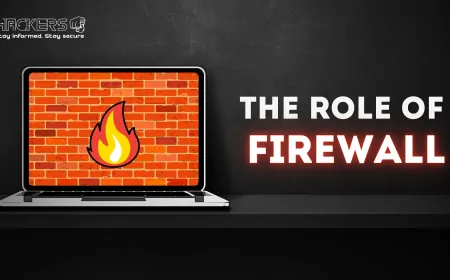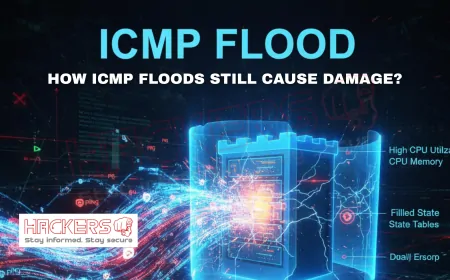Why Should Individuals Take Cyber Hygiene More Seriously in 2025?
You wake up. Your phone is frozen. A message says: “Pay $500 or lose everything.” Your photos, messages, bank app, all gone. You did not click a weird link. You did not visit a shady site. You just forgot to update your phone last month. That one delay cost you. This is not a scare story. This is 2025. Cyber attacks are faster, smarter, and hitting regular people, not just companies. Cyber hygiene, the daily habits that keep you safe online, is no longer optional. It is survival. From AI scams to ransomware on your smart fridge, the threats are in your home. This blog explains, in simple steps, what cyber hygiene is, why 2025 makes it urgent, and how you can protect yourself today. Your digital life depends on it. Let us clean it up.

Table of Contents
- Introduction
- What Is Cyber Hygiene?
- Why 2025 Is a Turning Point
- Everyday Risks You Face
- Core Cyber Hygiene Habits
- Good vs. Bad Hygiene: A Comparison
- Real Stories of Hygiene Failure
- Easy Wins for Busy People
- Protecting Your Family
- The Future of Personal Cyber Safety
- Conclusion
- Frequently Asked Questions
What Is Cyber Hygiene?
Cyber hygiene is the set of daily habits that keep your digital life clean and safe. Think of it like brushing your teeth or washing your hands. Skip it, and problems grow.
- Update devices and apps regularly
- Use strong, unique passwords
- Enable two-factor authentication (2FA)
- Avoid phishing emails and texts
- Back up important files
- Lock devices when not in use
It is not about being a tech expert. It is about building routines.
Why 2025 Is a Turning Point
The internet changed. So did the danger.
- AI scams: deepfakes, voice clones, smart phishing
- IoT explosion: 75 billion connected devices
- Remote everything: work, school, health, shopping
- Zero-day attacks: new flaws found daily
- Privacy laws: fines for companies, not you
- Cyber insurance: now asks for hygiene proof
Verizon’s 2025 report says 82% of breaches involve human error. You are the target.
Everyday Risks You Face
Threats are in your routine.
- Old phone: one unpatched bug = ransomware
- Weak Wi-Fi password: neighbor steals bandwidth, data
- Public charging station: juice jacking malware
- Smart TV: listens, sells your viewing habits
- Fake delivery text: one click locks your files
- Unused accounts: old email hacked, used for fraud
A single weak habit opens the door. Attackers walk in.
Core Cyber Hygiene Habits
Do these. Every day. Every device.
- Update everything: phones, laptops, routers, apps
- Use a password manager: never reuse passwords
- Turn on 2FA: prefer app or hardware key, not SMS
- Scan for malware: free tools like Malwarebytes
- Back up weekly: cloud and external drive
- Lock screens: PIN, fingerprint, face
- Use VPN on public Wi-Fi
- Delete unused apps and accounts
Ten minutes a week keeps hackers out.
Good vs. Bad Hygiene: A Comparison
See the difference.
| Action | Bad Hygiene | Good Hygiene |
|---|---|---|
| Updates | Ignore for months | Auto-update weekly |
| Passwords | “123456” everywhere | Unique, 16+ characters |
| 2FA | SMS only or none | App or hardware key |
| Backups | Never | Weekly, 3-2-1 rule |
| Phishing | Click first, think later | Hover, verify, delete |
Real Stories of Hygiene Failure
These people wish they acted sooner.
- 2024: Teacher lost $8,000 after clicking fake Zoom update
- 2025: Family photos held for $300 ransom on baby monitor
- 2025: Teen’s Roblox account used to buy $1,200 in gift cards
- 2025: Smart thermostat hacked, home heated to 95°F in winter
- 2025: Unused Hotmail account led to $50,000 bank drain
IBM says average breach cost for individuals: $2,100 in recovery.
Easy Wins for Busy People
No time? Start here.
- Turn on auto-updates on all devices
- Download a free password manager (Bitwarden, Proton)
- Enable 2FA on email and bank (5 minutes)
- Set phone to lock after 1 minute
- Use Google’s Security Checkup (google.com/securitycheckup)
- Delete one old account per week
One habit a week builds a fortress.
Protecting Your Family
Kids, parents, grandparents, all need hygiene.
- Teach kids: no passwords to friends
- Set up Family Sharing (Apple) or Family Link (Google)
- Secure home Wi-Fi: change default password
- Freeze credit for elderly relatives
- Use guest Wi-Fi for visitors and IoT
- Run monthly family “hygiene check” meetings
Safety is a team sport.
The Future of Personal Cyber Safety
By 2030, hygiene will be automatic.
- AI guardians: block threats before you see them
- Passkeys: replace passwords everywhere
- Auto-backup: every photo, every device
- Smart routers: filter malware at the gate
- Global hygiene score: like credit, but for safety
But until then, you are the firewall.
Conclusion
Cyber hygiene is not a chore. It is insurance. In 2025, one skipped update, one weak password, one ignored alert can cost you money, privacy, or peace. AI scams, smart devices, and remote life make personal security urgent. But the fix is simple. Update. Lock. Back up. Verify. Teach. Ten minutes a week protects everything. You brush your teeth daily. Now brush your digital life. Start today. Run one update. Change one password. Enable 2FA. The internet is not going away. Neither are the hackers. But with good hygiene, they cannot touch you. Be clean. Be safe. Be ready for 2025.
Frequently Asked Questions
What is cyber hygiene?
Daily habits like updating, strong passwords, and 2FA to stay safe online.
Why is 2025 different?
AI attacks, billions of devices, and remote life make personal risk higher.
Do I need to be tech-savvy?
No. Turn on auto-updates and use a password manager. That is 80% of safety.
Is free antivirus enough?
Yes. Windows Defender, Avast Free, or Malwarebytes work well.
Should I use the same password?
Never. One breach leaks all accounts. Use a manager.
Is SMS 2FA safe?
No. Use authenticator app (Google, Microsoft, Authy) instead.
How often should I update?
Weekly. Set devices to auto-update when charging at night.
Can my smart TV be hacked?
Yes. Update it. Disable mic. Use guest Wi-Fi.
Do I need a VPN at home?
Not usually. But use one on public Wi-Fi (airport, cafe).
What is the 3-2-1 backup rule?
3 copies, 2 local (phone + drive), 1 offsite (cloud).
Can kids have good hygiene?
Yes. Teach simple rules: no sharing passwords, ask before clicking.
Should I freeze my credit?
Yes, if worried. Free at Equifax, TransUnion, Experian.
Is public charging safe?
No. Use your own cable and power bank.
Can I delete old accounts?
Yes. Use JustDelete.me to find and close them.
Do password managers get hacked?
Rarely. Use strong master password and 2FA.
Is my router safe?
Change default password. Update firmware. Disable WPS.
Can I check my hygiene?
Yes. Use Google Security Checkup, Apple ID check, HaveIBeenPwned.
Will hygiene be automatic soon?
Yes. But until 2030, you must do it yourself.
Is one breach the end?
No. Act fast: change passwords, freeze accounts, scan devices.
How do I start today?
Update your phone. Enable 2FA on email. Download a password manager.
What's Your Reaction?









































































